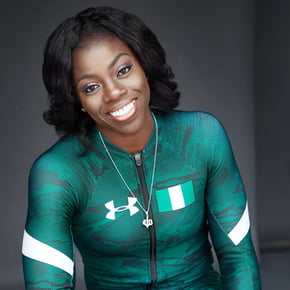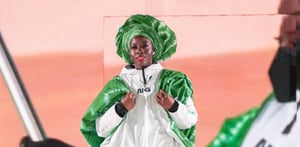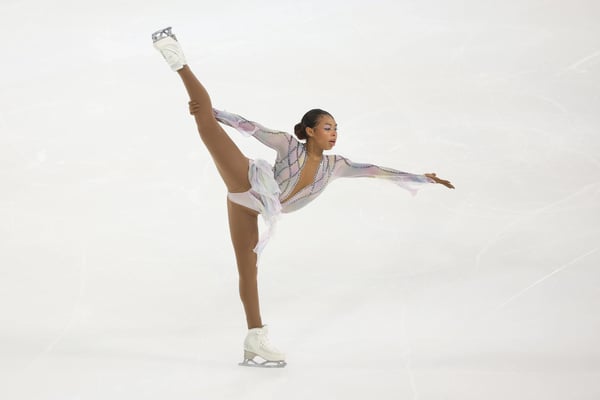One day, while I was warming up in the snowy mountains of Park City, Utah, I laced up my Gore-Tex running shoes, fastened the suspenders on my snow pants, and recited Surah Al-Fatiha in my head. I was getting ready to compete in my first World Cup Bobsled race as a brakeman for Team USA, and I wanted to push the fastest time of my life. I pressed play on my Spotify ‘warm-up’ mix, which was comprised of 70% Afrobeats songs, and took off jogging. A song came on called Arise by the Mavins. I swear I had listened to that song 100 times before then. But that day, for some reason, after about :50 seconds I was so overwhelmed with emotions that I stopped mid-stride and started walking. I found myself in a remote area of the mountains, at 7300 at elevation, staring into the distance. I was both happy and sad at the same time.
My mind understood what I was doing but my heart knew the ode I had made to myself over a decade earlier. It was bigger than sport and I knew what I had to do.
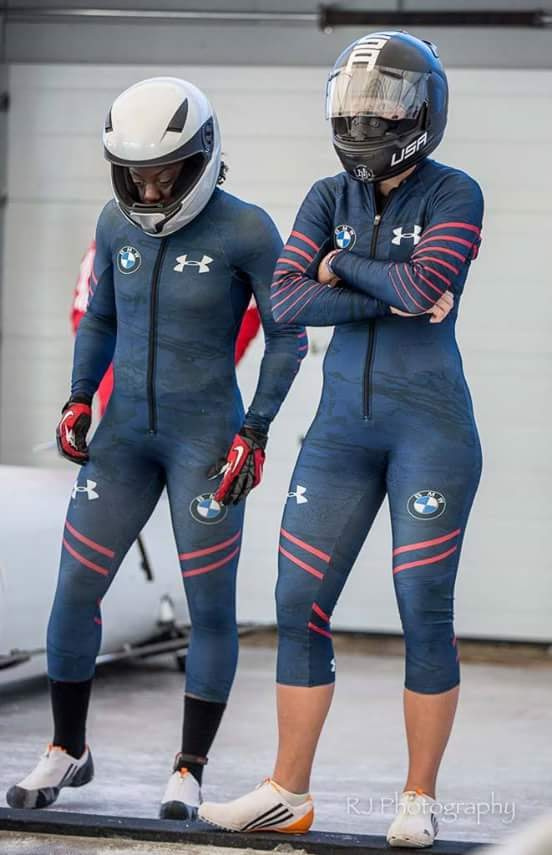
Source: Dr. Seun Adigun
There are so many ways to breakdown what it means to represent your “other” country. Some may even argue that there are layers to peel back and definitions to establish. My perspective and experience, although unique to me, is not unique.
Anyone who embodies more than one race or ethnicity can relate to the fact that you are never really accepted by either one. Regardless of the decision, the selection is always going to be wrong somehow. So, ultimately, the goal is to choose the outcome that allows you to sleep well at night and stick with it – that’s what I did.
I chose to compete for the country that produced my parents, which granted me dual citizenship. I understood that there would be indescribable challenges from both countries to accept my decision. I knew that I could potentially lose so many things that I worked hard for, from friends to finances, but once the decision was made there were no regrets.
Privilege.
I was born in Chicago to two Nigerian parents who both legally immigrated to the United States and became naturalized citizens. My life experiences were all encompassing of my day-to-day as a Chicagoan raised in a household that was rooted in the Nigerian, Yoruba culture. For many years, I was annoyingly conflicted which often caused me to compartmentalize the different “versions” of who I was.
I recognized that I represented both countries in different ways every day, but I didn’t see the privilege yet. It wasn’t until I sat with my family in the living room watching the “Parade of Nations” during the Opening Ceremony of the 2000 Summer Olympics.
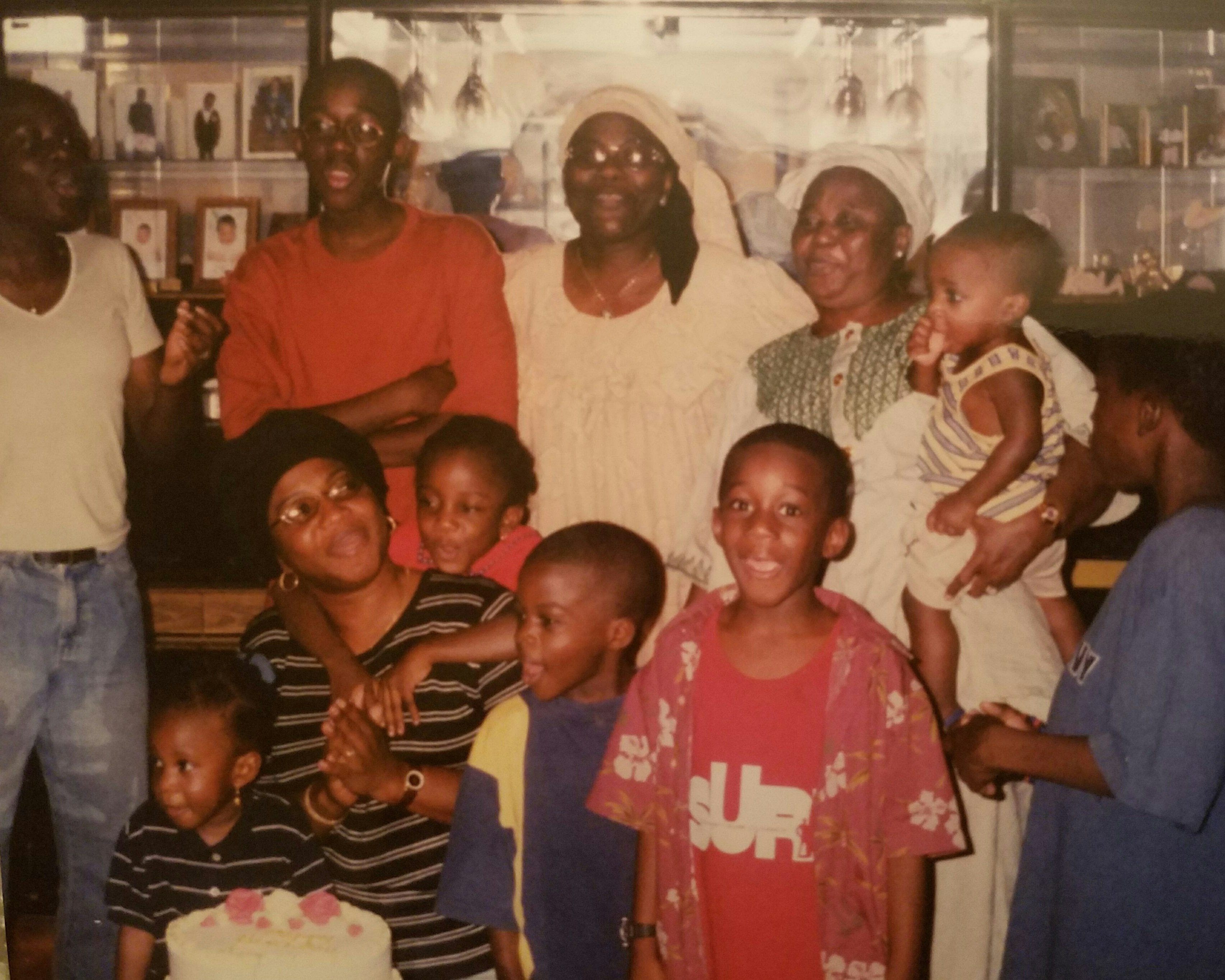
Source: Dr. Seun Adigun
Nothing could replace the feeling of pride I saw on everyone’s face and the eruption of excitement that took over when we heard the announcer say, “Nigeria!”. In that moment no one cared about any negative headlines about the country. No one cared about the struggles and suffering taking place in the country. No one cared about tribes or religion. All that mattered was that everyone was flying the Nigerian flag on the world’s biggest stage in sports competition. As a Nigerian, I felt seen, and I felt celebrated. I knew that if I ever became a professional athlete that I wanted to bring someone else that same feeling.
I had done so many remarkable things to contribute to the excellence of being an American, so I knew if I ever became a professional athlete, that was what I wanted to contribute to the greatness of being a Nigerian.
It was later that I further recognized that my commitment to competing for Nigeria in sport was far bigger than just bringing a sense of pride and joy to people all over the world who identify with the country. This gesture was my small way of showing other first-generation Africans that it’s okay to bridge the gap between all that you are. So many black people in the diaspora were stripped of their ability to connect back to the African soil. So again, I found myself in a privileged position. I wanted to show my peers who were raised in the diaspora – whether they are first, fourth, or eighth generation – that their desire to own their African identity was not out of reach.
To whom it may concern: I was raised on the same streets and went to the same schools as you. I recognize that I was also raised around the intricate culture of Nigeria. That didn’t eliminate the shock of assimilating when I first returned to the motherland. I first touched down in Lagos as an adult after not being there since I was on vacation at 4 years old. If I can reconnect, so can you.
Sacrifice.
I heard so many people say, “You took the easy road out to make the Nigerian Olympic team, because Team USA is one of the hardest teams to make in the world.” Let’s dissect that real quick. They aren’t wrong about Team USA being one of the hardest to make in the world, but they aren’t right about the road being easy going a different route.
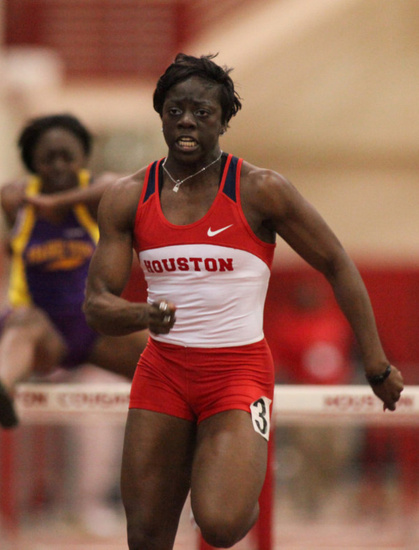 Source: Dr. Seun Adigun
Source: Dr. Seun Adigun
When I first decided to compete for the country of Nigeria it was through the sport of track and field. I was ranked in the top 6 in the United States when I elected to make the switch. Although only the top 3 athletes in each individual track event make the national team, I wasn’t in an unrealistic position to run for Team USA. I was proud of what I had done to showcase myself as an American. I had helped my high schools bring back state titles, and I brought national records and All-American status to my university. I had successfully dedicated my youth and collegiate sports accolades to every entity I represented as an American. So, I felt like it was time to use my professional career to bring some notoriety to Nigeria.
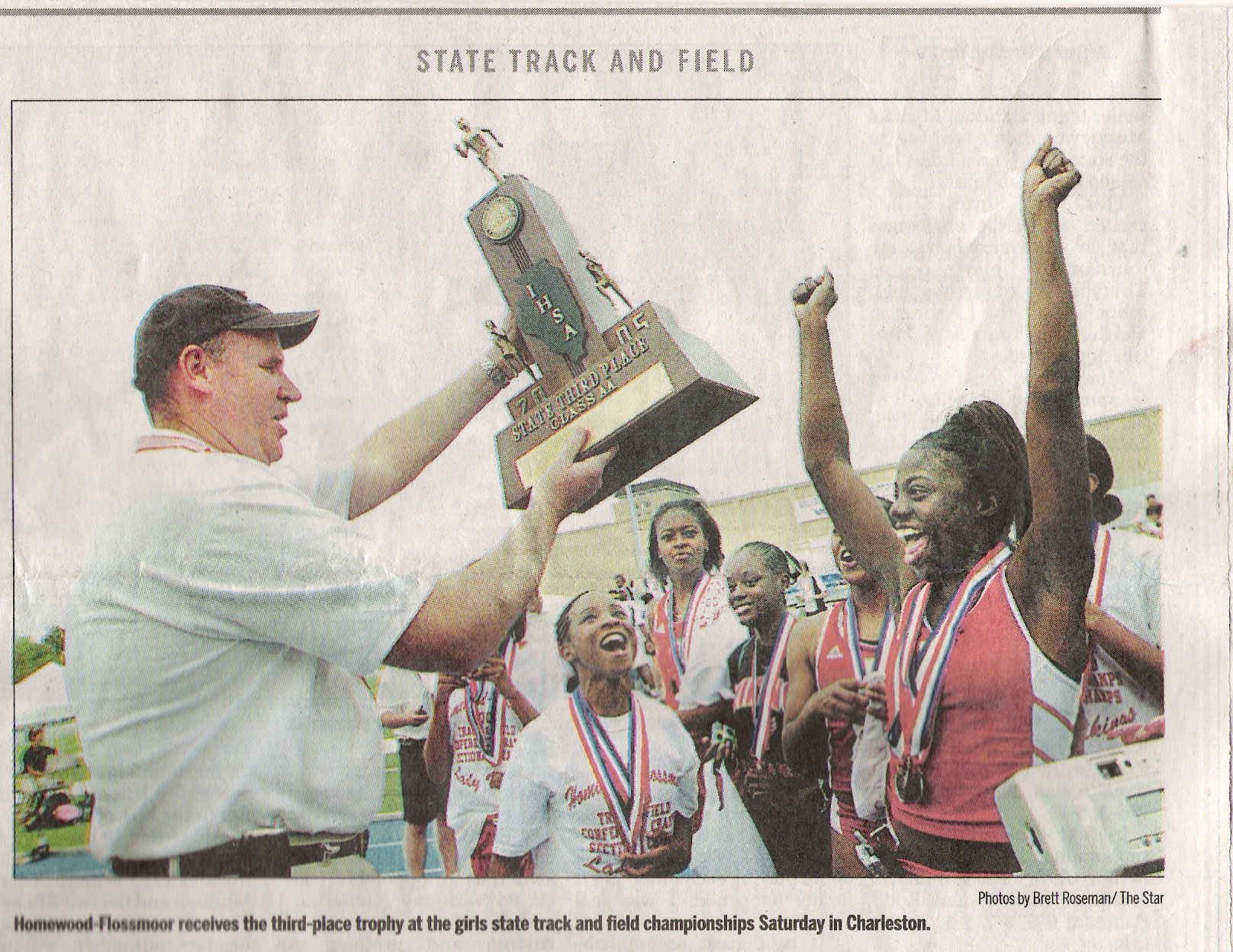
Source: Dr. Seun Adigun
Let’s be clear here – it was not popular or even favorable at that time to be African. As a matter of fact, I was willingly throwing myself to the wolves by electing to bring my talents to Nigeria instead of maximizing my potential with the multitude of resources I had access to in the United States.
Afrobeats was not popular then; African style clothes was not popular at that time; and honestly, I was still struggling just to get people to understand the depth of beauty in my skin tone. I had a major shoe company offer me an endorsement contract right out of college only for them to withdraw it once they learned I elected to compete for Nigeria. They simply justified it with saying “how many shoes are we going to sell in Nigeria?”. To my surprise that was the energy I got from all endorsements despite having been tied for #1 in the NCAA in my event and being a finalist for the NCAA Athlete of the Year in 2009.
It. Was. Not. Cool. To. Be. Nigerian.
But I had a bigger purpose. I knew what my mission was, and it had nothing to do with how much I would be paid for representing myself and others like me.
That’s the exact mindset that inspired me to start the Nigerian Bobsled team. It was my ode to the country and my commitment to showing the world that Nigerians can do great things and be on the grandest stages in a positive light. Representation matters.
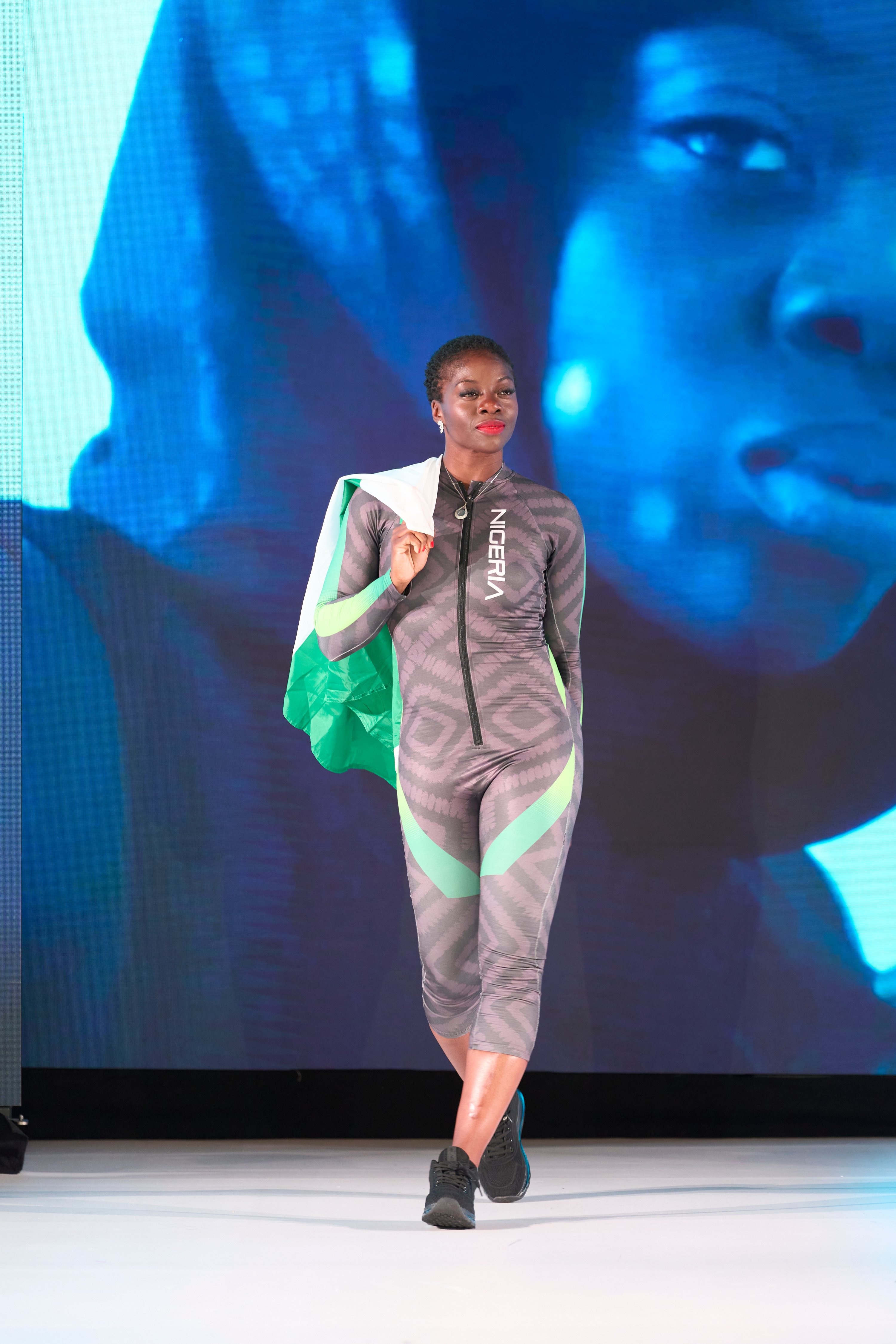
Source: Dr. Seun Adigun
Patriotism.
There are very few things that are more powerful than stepping onto a major sports stage, wearing the flag of your country on your chest. There’s a sense of honor that takes over you accompanied by a huge sense of responsibility to be the face for millions (sometimes billions) of people.
True patriotism can’t be taught, it’s felt; because no mater where you are in the world, your heart still beats to the love and greatness of everything you are at your core. You first have to accept it, then own it.
For centuries, being African was not something that people in the diaspora could own and be proud of, so they defaulted to whatever it was that they could. However, times are changing.
African people are seeing themselves being celebrated in all ways, and their confidence and dignity is growing. That self respect brings hope to the next generation of believers and dreamers.
That honor is not only a small contribution to the future, but it is also acknowledgment of the past. We are our ancestors’ wildest dreams. We have the potential to embody all the greatness that they could not and amplify their stories. Representing “home” is showcasing where our happiness is unlimited, therefore, it doesn’t have to be limited to one part of us. It’s ownership of every part of us.
At the end of the day, choosing to represent the “other” country has been a gift, not just for me, but for all that I stand for.
Everyone who relates with me – whether they are American, Nigerian, Woman, Black, First-generation, or anything else that connects them to me – gets to claim a level of excellence that lives inside of them as well.
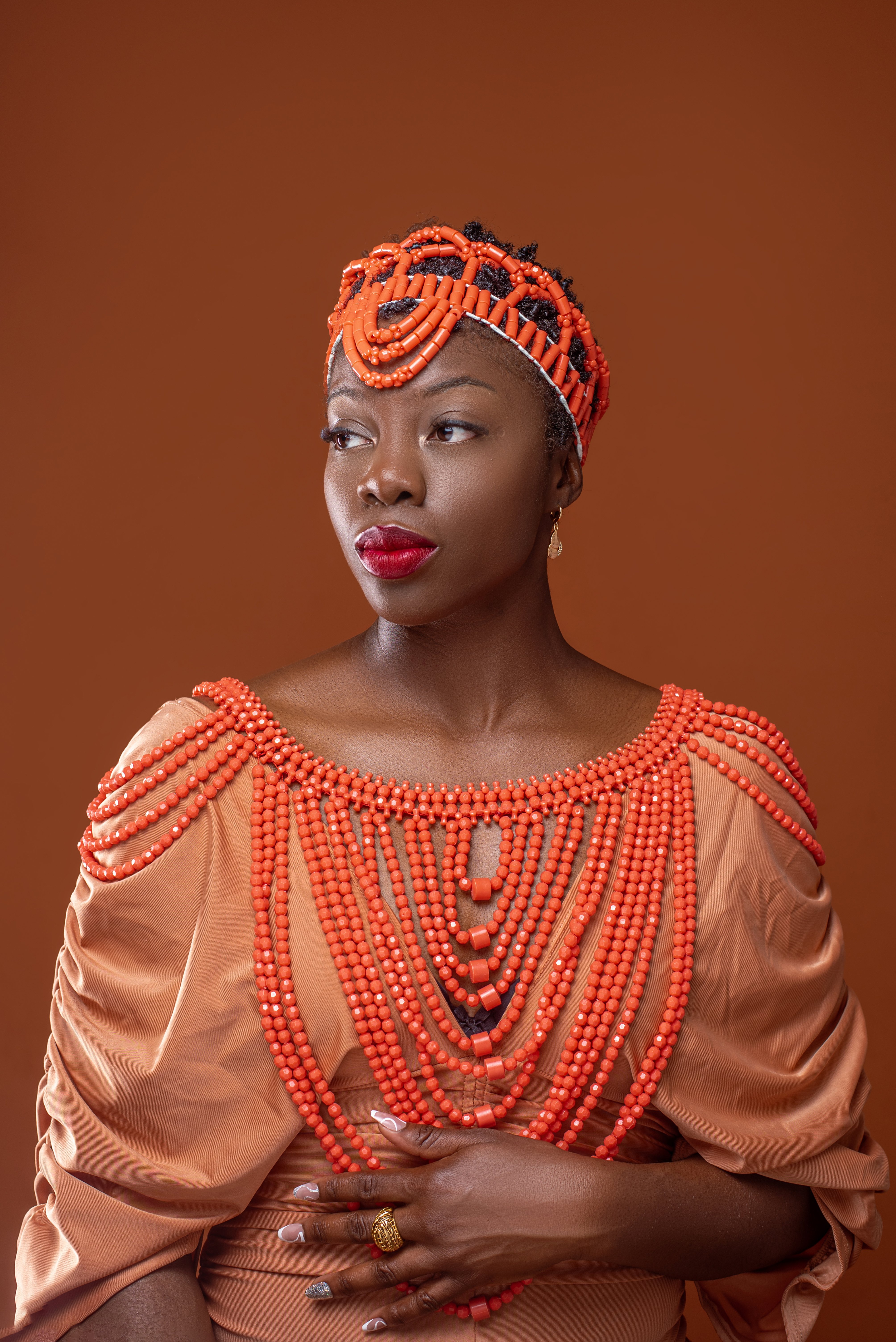
Source: Dr. Seun Adigun
To whom it may concern: Stand for something bigger than yourself, and it will make it easier to deal with the consequences, both good and bad. It’s okay to own all of who you are because there are plenty of things in this world available to serve. It all starts with you. Be yourself. Once you can confidently answer the question, “Who are you?”, you will know exactly what to do. Never let the world dictate how you value yourself, establish that from within.
I am a proud first-generation Nigerian American. I have represented myself as an American proudly, and I have also contributed greatly to who I am as a Nigerian. And given the opportunity to do it all over again, I’d choose the same thing.
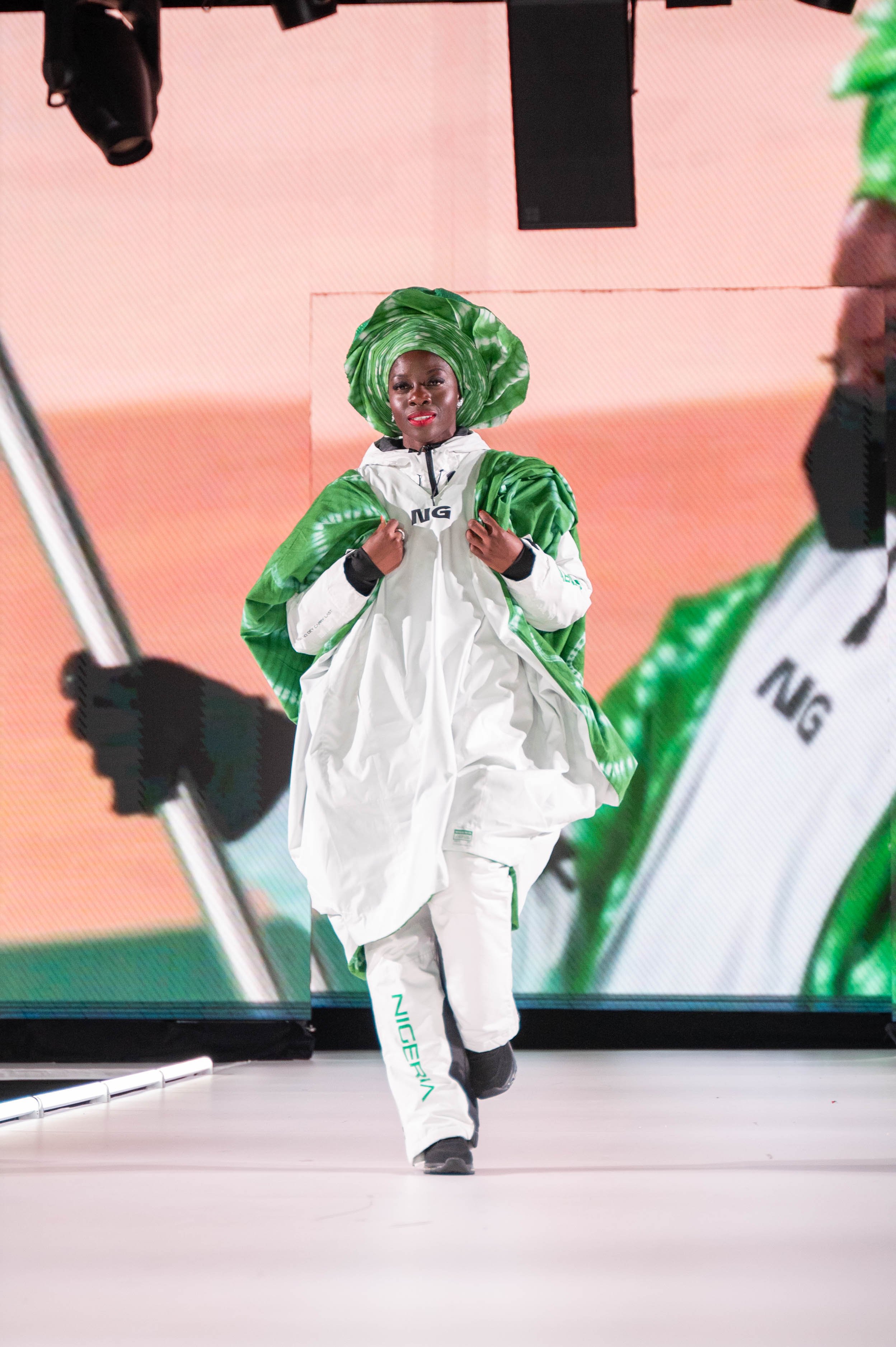
Source: Dr. Seun Adigun
About Parity
Minority-founded in 2020, Parity's mission is to close the gender income and opportunity gap in professional sports. By developing high-impact collaborations between brands, professional women athletes and their fans, Parity has proudly put more than $3.5 million in the pockets of women athletes, attracting dozens of brands to the movement in the process. The platform offers connections to more than 1000 women athletes from 80+ sports, including well over 200 Olympians and Paralympians. For more information on how to tap into the rapidly rising influence and popularity of women athletes, visit https://paritynow.co or follow us on Instagram, LinkedIn, Facebook, X (formerly Twitter) and Threads.
